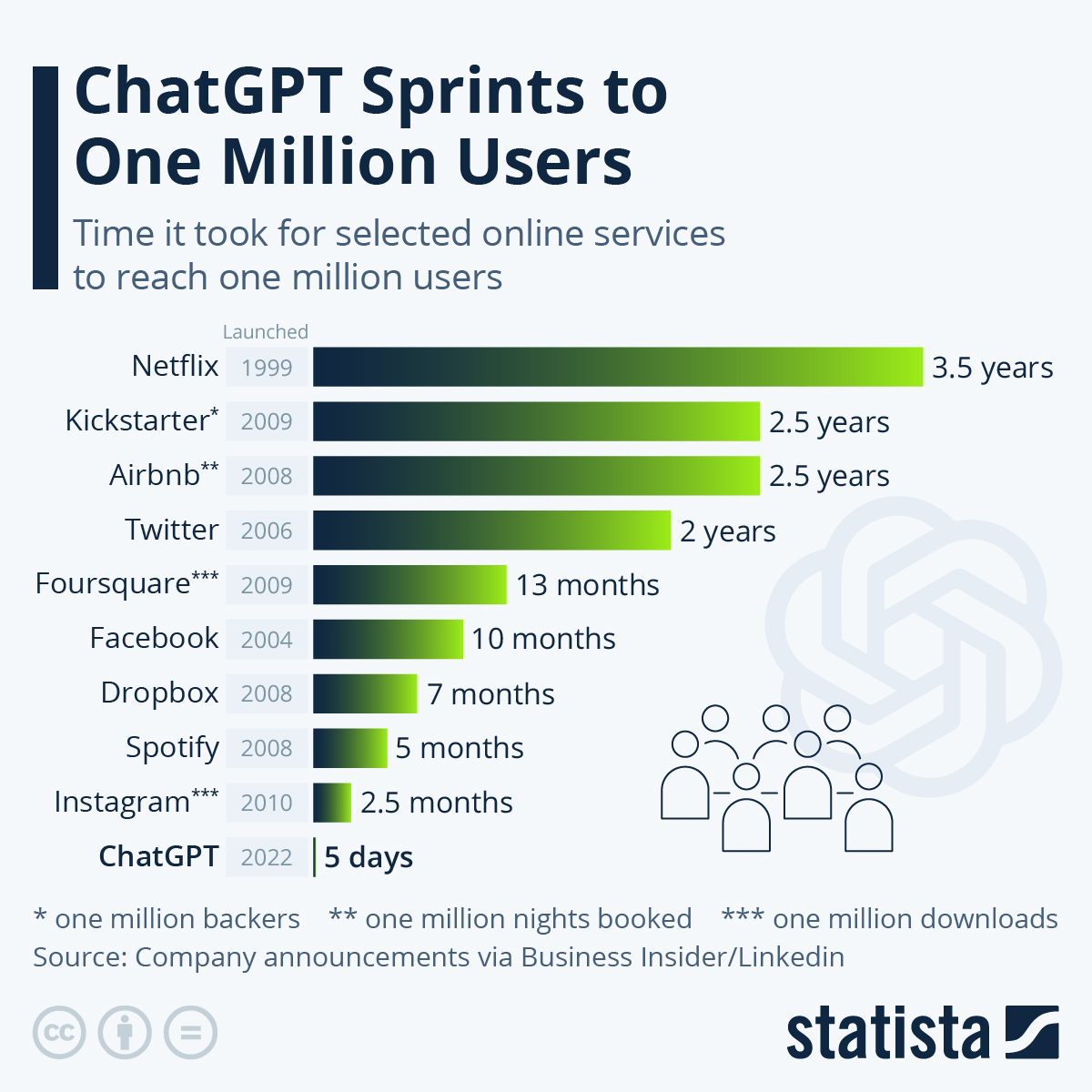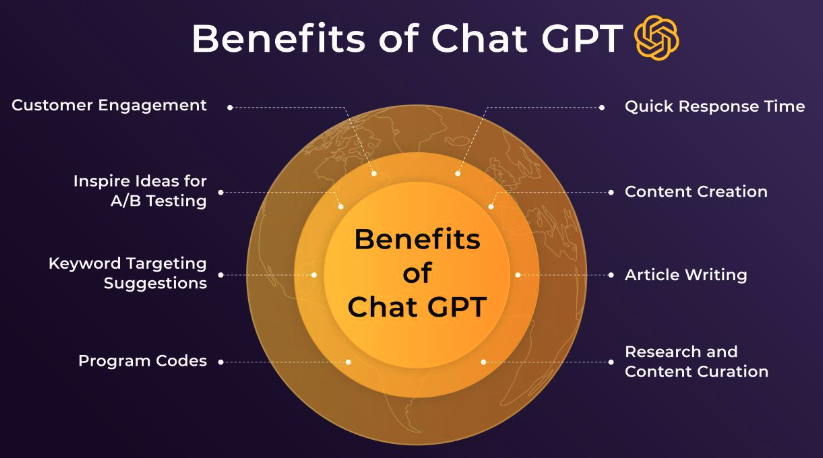Table of Contents
Is Building a ChatGPT-Powered Application Smart or All Hype?
Author

Date

Book a call
In recent years, businesses have shown a growing interest in integrating artificial intelligence (AI) into their operations. One specific application that has been gaining a lot of attention is ChatGPT. But is building a ChatGPT-powered application really a smart business move, or is it all just hype?
This article explores this question by examining the features of ChatGPT technology, the rise of AI-powered applications, the advantages of developing a ChatGPT-powered app, and the potential drawbacks and challenges.
Understanding ChatGPT Technology
What is ChatGPT?
ChatGPT is a natural language processing (NLP) model developed by OpenAI, a research organization dedicated to advancing AI. The system is based on a deep learning architecture that uses a neural network to analyze and understand natural language input, then generate an appropriate response. The model is trained on a massive amount of data, enabling it to perform various tasks with high accuracy and efficiency.

Image Source: Statista
One of the key benefits of ChatGPT is that it can be used for a wide range of applications, including language translation, question-answering, and conversation. This makes it a versatile tool that can be used in many different contexts, from customer service to personal assistants and more.
How Does ChatGPT Work?
At its core, ChatGPT is a language model that predicts the likelihood of a given sequence of words. To generate a response for an input, the system first analyzes the input to determine the context and intent. It then uses its training data to predict the most likely answer in the conversation, generating a response that is both relevant to the input and linguistically fluent.
One of the key advantages of ChatGPT is that it is able to generate responses that are highly context-dependent. This means that the system is able to take into account the broader context of a conversation, including previous messages and user preferences, in order to generate a more accurate and relevant response.
Another important feature of ChatGPT is its ability to learn from new data. This means that the system can continually adapt and improve its accuracy over time as it is exposed to new language patterns and usage.
Key Features of ChatGPT

One of the most significant features of ChatGPT is its ability to generate context-dependent and fluent responses. This means that the system can generate responses that are relevant to the input and sound natural and human-like!
The Rise of AI-Powered Applications
The Role of AI in Modern Businesses
Artificial Intelligence (AI) is a vital technology businesses must utilize to stay ahead of the competition. By automating routine tasks, improving efficiency and productivity, and enhancing the customer experience, AI-powered applications provide numerous benefits to organizations of all sizes and industries. With the power of AI, businesses can now efficiently analyze large amounts of data and make better-informed decisions, leading to increased profitability and growth.
The cost savings achieved by implementing AI-driven automation can be significant for businesses. According to a study by Capgemini, organizations can save up to 70% in support function costs with the use of AI technologies.
The revolutionary impact of AI on businesses is undeniable. For example, AI-powered chatbots can efficiently handle customer inquiries and complaints, freeing up customer service representatives to focus on more complex issues. Moreover, AI-powered applications can help businesses optimize their operations by automating repetitive tasks like data entry, scheduling, and inventory management.
Companies like GeekyAnts are revolutionizing how AI is used in app development and related services. Check out this story by ANI.
Examples of Successful AI Applications
| AI-Powered Applications | Description |
|---|---|
| Virtual assistants | Provide users with a hands-free and intuitive way to interact with their devices. Examples include Siri and Alexa. |
| Personalized recommendation engines | Use AI algorithms to analyze user data and provide suggestions based on their viewing and purchasing history. Examples include Netflix and Amazon. |
| Fraud detection systems | Used by financial institutions to quickly identify and flag suspicious transactions, preventing fraudulent activity. |
| AI-powered chatbots | Provide customers with personalized product recommendations based on their browsing and purchasing history, increasing customer satisfaction and loyalty. |
| AI-powered Employment Platforms | Automated hiring tool that streamlines the recruitment process. Prime example being topgeek |
The Impact of AI on Various Industries
AI is being used across various industries, from healthcare and finance to manufacturing and retail.
- In healthcare, AI-powered applications can help doctors and researchers analyze large amounts of patient data to identify patterns and develop new treatments.
- In finance, AI can be used to analyze market trends and make investment decisions.
- In manufacturing, AI-powered robots can help streamline production and improve efficiency.
The technology has the potential to transform how these industries operate, increasing efficiency, improving outcomes, and reducing costs. For instance, AI-powered predictive maintenance can help manufacturing companies reduce downtime and prevent equipment failure, saving them time and money. In healthcare, AI-powered applications can help doctors make more accurate diagnoses and develop personalized treatment plans, leading to better patient outcomes.
AI-powered applications have the potential to revolutionize the way businesses operate across various industries. By automating routine tasks, improving efficiency and productivity, and enhancing the customer experience, AI can help businesses gain a competitive edge and achieve their goals.
Advantages of Building a ChatGPT-Powered Application
1. Improved customer experience
One of the biggest advantages of building a ChatGPT-powered application is the ability to provide a more personalized and engaging customer experience. By leveraging ChatGPT's natural language processing capabilities, businesses can create intelligent virtual assistants that can handle a range of customer inquiries and provide real-time support.
For example, imagine a customer is trying to purchase a product from an online store but is having trouble finding the right size. With a ChatGPT-powered virtual assistant, the customer can simply type in their inquiry and receive a personalized response that helps them find the right size. This saves the customer time and frustration and creates a positive impression of the business.
2. Enhanced efficiency and productivity
Another benefit of building a ChatGPT-powered application is the ability to automate routine tasks and streamline business workflows. By using ChatGPT to handle simple customer inquiries or to assist with data entry, organizations can free up their human employees to focus on more strategic and complex tasks.
For instance, a ChatGPT-powered virtual assistant can be used to handle frequently asked questions, such as shipping and return policies. This not only saves time for both the customer and the business but also reduces the workload for customer service representatives, allowing them to focus on more complex issues that require human intervention.
3. Cost savings and scalability
ChatGPT-powered applications can also offer significant cost savings, particularly when it comes to customer support. By providing real-time support and reducing the need for human intervention, these applications can reduce costs associated with hiring and training customer service representatives.
Moreover, ChatGPT-powered applications can easily scale to meet growing demand without incurring the same costs associated with hiring and training new employees. This makes them an attractive option for businesses that want to expand their customer support capabilities without increasing their overhead costs.
4. Competitive edge in the market
Finally, building a ChatGPT-powered application can provide a competitive edge in the market. By offering a more personalized, efficient, and engaging customer experience, businesses can stand out from their competitors and attract and retain more customers.
Additionally, ChatGPT-powered applications can help businesses gather valuable insights into customer behavior and preferences. By analyzing the data generated by these applications, businesses can identify areas for improvement and make data-driven decisions that help them stay ahead of the competition.
Potential Drawbacks and Challenges
While ChatGPT-powered applications offer many benefits, there are also several potential drawbacks and challenges that developers must consider.
1. Data privacy and security concerns
One of the most significant challenges associated with building a ChatGPT-powered application is the potential for data privacy and security breaches. Because these systems require access to sensitive customer data, it is essential to implement robust security protocols to protect against unauthorized access and data loss.
Developers must also be aware of the potential for data breaches caused by external factors, such as cyber-attacks or system failures. To mitigate these risks, it is crucial to conduct regular security audits and implement best practices for data protection.
2. Ethical considerations
Another challenge associated with ChatGPT-powered applications is the potential for ethical concerns. As with any AI-powered system, the lack of human involvement in decision-making can raise ethical questions, particularly around issues such as bias, fairness, and accountability.
Developers must ensure that their applications are designed and deployed in an ethical and responsible manner, taking into account the potential impacts on users and society as a whole. This may involve incorporating transparency and accountability measures, such as providing explanations for system decisions or allowing users to opt out of certain features.
3. Technical limitations and reliability
While ChatGPT is a highly promising technology, it is not without its limitations. For example, the system may struggle with tasks that require a high degree of context or background knowledge. Additionally, there is always a risk of errors or inaccuracies in the system's responses, which can impact the reliability and integrity of the overall application.
To mitigate these risks, developers must thoroughly test and validate their applications using a combination of automated testing and human review. They must also be prepared to address any issues that arise promptly through ongoing maintenance and updates.
4. Integration and maintenance costs
Finally, building a ChatGPT-powered application can be a significant investment, both in terms of time and cost. Integrating the system with existing workflows and platforms can be complex, and ongoing maintenance and updates require ongoing resources and support.
Developers must carefully consider the costs and benefits of implementing a ChatGPT-powered application, weighing factors such as potential ROI, user adoption, and long-term maintenance costs. They must also be prepared to invest in ongoing training and development to keep up with the latest advances in AI technology.
Final Thoughts
Building a ChatGPT-powered application can offer a range of benefits to businesses, including improved efficiency, an enhanced customer experience, and cost savings. However, organizations must also be aware of the potential challenges and limitations associated with the technology, including data privacy and security concerns, ethical considerations, and technical limitations.
Ultimately, whether building a ChatGPT-powered application is a smart business decision will depend on a range of factors, including the organization's specific goals and needs, available resources, and investment in AI capabilities.
With careful planning and execution, however, ChatGPT-powered applications have the potential to be a transformative technology for a wide range of businesses and industries.
Some enterprises have been utilizing AI technology, including ChatGPT, in innovative ways that you cannot even imagine!
GeekyAnts, a design and development studio based in Bangalore, has effectively utilized ChatGPT and AI. Among the products developed by GeekyAnts that effectively leverage ChatGPT are the database generator, fitness app, and HR bot.
Make the most of the AI revolution by taking advantage of their services!





